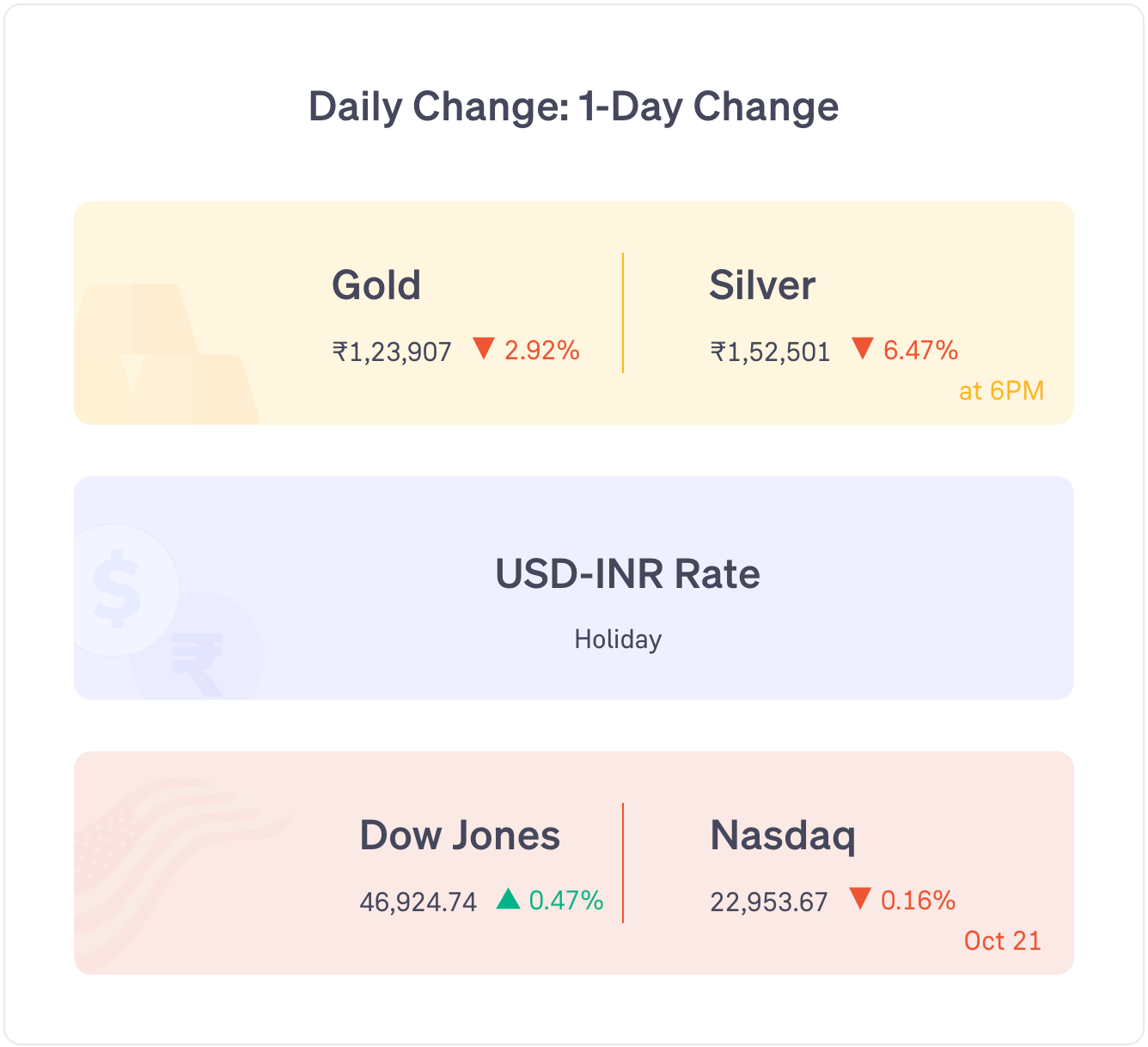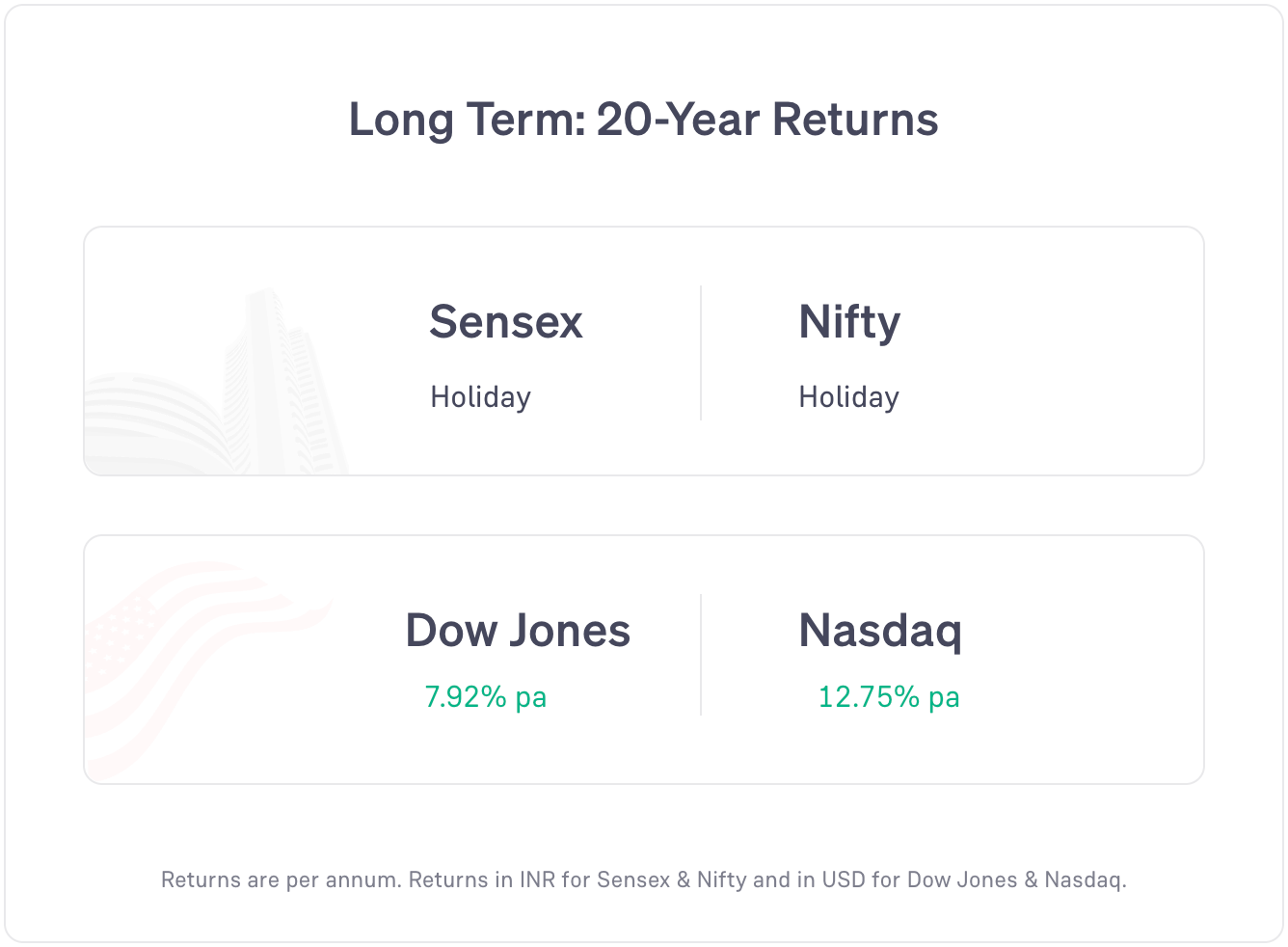Markets holiday, UPI transactions record rise in Oct, & more - Groww Digest
Wednesday, 22 October 2025
The Indian stock markets were closed today on account of Balipratipada.
Hence, there won’t be any updates on the Nifty 50, Sensex, Top Gainers, and Top Losers sections today.
Global markets: Most US markets closed flat. Most Asian markets fell. European markets showed a mixed trend (as of 6 pm IST).
News
UPI’s average daily value reached a record Rs 96,638 crore in October 2025, with a total monthly value reaching Rs 8.70 lakh crore: NPCI
UK inflation stayed constant at 3.8% year-on-year in September 2025, unchanged from the previous 2 months. Core inflation eased to 3.5% (vs 3.6% in August).
Word of the Day
CapEx
It is the money spent by a company on maintaining or buying long-term assets
It stands for Capital Expenditure.
Example: land, buildings, machinery, tech, intangible assets like patents, etc.
Capital expenditures are recorded as assets on the company’s balance sheet because this spending will benefit the company in the future.
Different sectors need different amounts of capex.
Usually, sectors like IT and finance need lower capex, while energy, auto, and manufacturing need higher capex.
6 Day Course
Theme: commodities trading
Day 3: Wednesday
Commodities trading has three kinds of traders (broadly speaking).
Speculators — who are looking for good deals so they can buy low and sell high.
Arbitrage traders— who do not care much about the actual commodity itself. They are only looking to take advantage of price differences across different exchanges.
Hedge traders — they are real world commodity users/producers who are looking to reduce their risk for stability in their operations. They are not necessarily looking to profit. Only to reduce their risk.
First, let’s talk about the speculators.
This kind of trader is the one that buys/sells commodities based on what they think will happen in the future.
If they think a news is going to cause the price of crude oil to jump, they will buy crude oil. If they think it will fall, they will try to short sell the commodity.
These traders are similar to traders who buy/sell stocks.
Featured Question
Q. "When I sell the stock, how is its value decided?"
When you sell a stock, the exchange looks for buyers.
There are two kinds of buy/sell orders: market order & limit order.
When you place a market order to sell, you are telling the exchange the number of stocks you want to sell immediately.
The exchange will look at the bids (the price at which live buyers want to buy). It will then match you with the highest prices it finds.
Example:
You want to sell 100 shares of XYZ.
In the market, there are:
1. Buyer wanting to buy 20 shares at Rs 300
2. Buyer wanting to buy 50 shares at Rs 298
3. Buyer wanting to buy 30 shares at Rs 301
So, the exchange will first sell 30 of shares for Rs 301. Then 20 shares at Rs 300. Then 50 shares at Rs 298.
In case of limit orders, you set a limit under which not to sell. So the exchange will sell at the highest price possible that is above the limit you have set.
Under that limit, it will stop selling the shares.
The exchange works similarly while buying stocks also. In that case, it will look for the lowest price possible.
Did you like this edition?
Leave a feedback here!




good show
What do I say, yr opinion and advice is very crucial matched in day to day my experience. Thanks for your support.